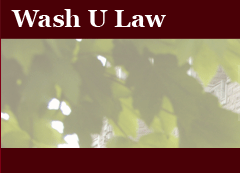Avoidance, Evasion, and Taxpayer Morality
Publication Title
Washington University Journal of Law & Policy
Abstract
This Essay fleshes out the case for caution in employing morality as a stop-gap measure to avoid drawing a regulated line between tax evasion and tax avoidance, while still meting out punishment within the undefined space between these two poles. It suggests that the alternate view—that taxpayer behavior must be managed by law rather than social sanction—has the best chance of driving tax policy toward greater coherence in the long run.
This alternate view, that tax policy must be contained in law, does not mean the public must be uninvolved in policy discourse; the opposite is clearly true. The public seems uniquely suited to the task of demanding transparency in governance as a mechanism for monitoring lawmaking and addressing tax policy problems. Transparency is of course an imperfect mechanism, but it seems to be the best hope for achieving justice across a wide variety of governance-related failures of which unjust taxation is a prominent example. Transparency forms the central core of all contemporary treatments of the problem of governance, and there is no reason why it should not also define the contours of thinking about what behaviors should be acceptable when it comes to taxation.
For this reason, this Essay concludes that the problem of distinguishing tax avoidance from tax evasion presents a base case for demanding transparency in both tax information and tax lawmaking, in the service of pursuing tax justice.
Recommended Citation
Allison Christians,
Avoidance, Evasion, and Taxpayer Morality,
44
Wash. U. J. L. & Pol’y
039
(2014),
https://openscholarship.wustl.edu/law_journal_law_policy/vol44/iss1/8
